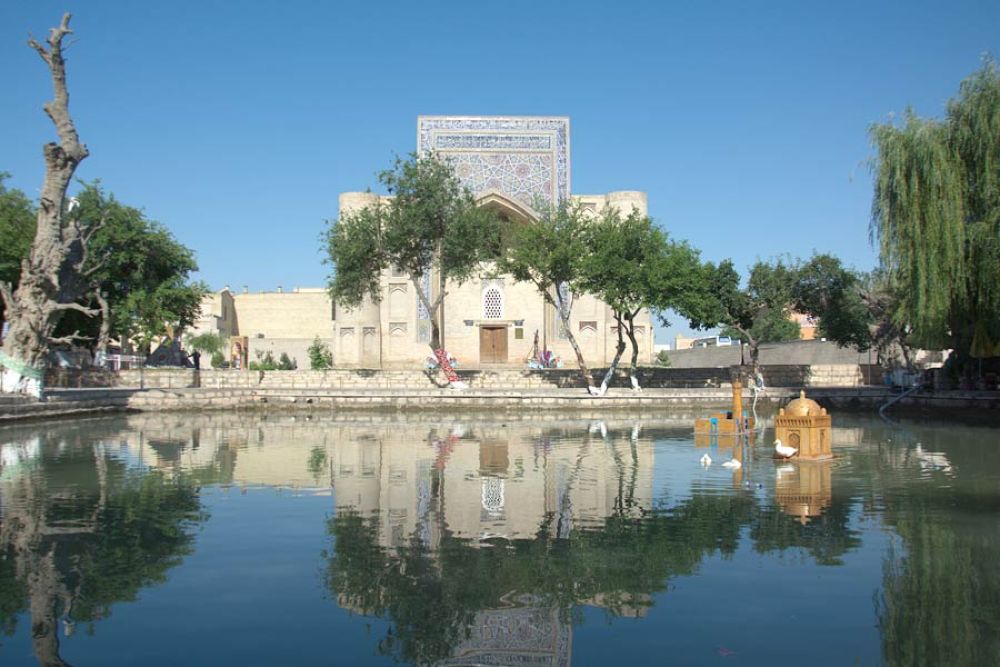Lyabi-Hauz Ensemble, located in the historical city of Bukhara in Uzbekistan, is a central highlight of the city’s ancient architectural legacy. Built around the 16th and 17th centuries, Lyabi-Hauz is named after the large pond (Hauz) at its heart, which is surrounded by mulberry trees and served as a source of water and a place for social gatherings in the past. The word 'Lyabi' means 'around the pond' in Persian. This ensemble includes some of the most significant monuments of Bukhara, such as the Kukeldash Madrasah, the largest in the city, which dates back to the 16th century; the Nadir Divan-Begi Madrasah, which has been transformed into a caravanserai; and the Nadir Divan-Begi Khanaka, which served as a lodging place for traveling Sufis and dervishes. The entire complex showcases the splendid Islamic architecture with intricate tile work, grandiose facades, and majestic domes. Lyabi-Hauz is not only a tourist attraction but also a living reminder of Bukhara's historic role as a center of scholarship, trade, and culture on the Silk Road.

